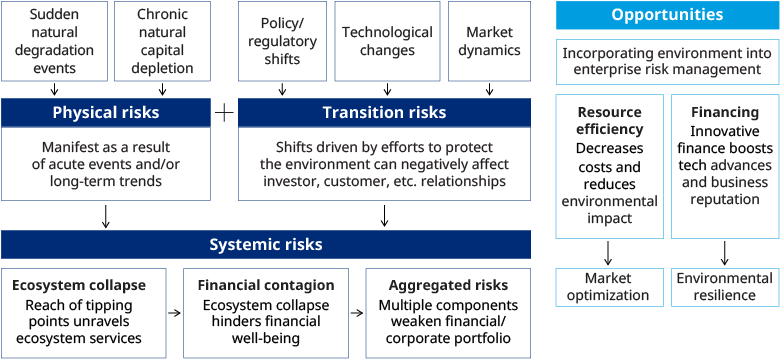With more than half the world’s economic output (an estimated US$44 trillion) either highly or moderately dependent on the environment, the consequences of environmental and nature degradation are severe.
We have already started to see the impact of extreme biodiversity loss, widespread pollution, and overconsumption of natural resources in areas such as societal health, supply chain, and food security. Importantly, the issues of nature loss and climate change are inextricably linked.
For these compelling reasons — among others — disclosure and transparency around nature impact is essential; and the Taskforce on Nature-Related Financial Disclosures (TNFD) promises to become a leading global framework.
Driving private sector collaboration for natural capital protection in the Middle East

The Nurturing Natural capital: The Middle East Imperative report looks at the mechanisms of the TNFD, and how its approach can help Middle East countries protect their natural and environmental capital, while enabling the private sector to support and accelerate the impact of government policies by:
- Detailing some of the region’s unique challenges and opportunities when it comes to environmental capital.
- Offering an insider’s analysis of the TNFD itself and the benefits of nature-related disclosures
- Providing first-hand lessons learned from the TNFD pilot and the implementation of other relevant frameworks such as the Taskforce on Climate-Related Financial Disclosures and the Circular Carbon Economy framework.
- Explaining how to apply these learnings specifically in a Middle Eastern context and how government and government-owned entities can drive momentum for the private sector’s involvement.
 With 40-50% of the Middle East’s Gross Domestic Product (GDP) highly or moderately dependent on the environment, the protection of limited resources, endemic vegetation, and wildlife is crucial in terms of long-term sustainability
With 40-50% of the Middle East’s Gross Domestic Product (GDP) highly or moderately dependent on the environment, the protection of limited resources, endemic vegetation, and wildlife is crucial in terms of long-term sustainability
Fortunately, the implementation of the TNFD through pilot programs in Africa provides a useful blueprint with several key learnings. These include the necessity of a visible show of support for the issue from leadership teams, allowing experience and insights gleaned from addressing climate risks to inform the approach to nature, as well as, developing a comprehensive nature-related assessment, and considering tools beyond disclosure. Participation in public-private partnerships and grassroots initiatives may be a sound place to start.
Guided by the principles put forward by the TNFD, the private sector can — and surely will — become a formidable force in the fight for nature.
Read the full report, here.
Watch: Johnny Ayoub on Nurturing Natural Capital
Written in collaboration with the World Government Summit.
